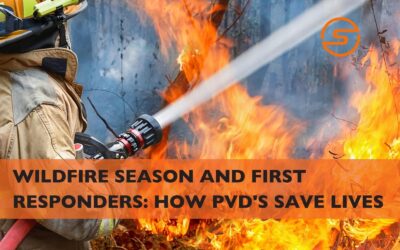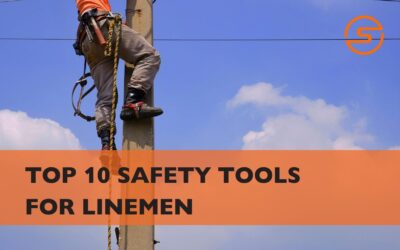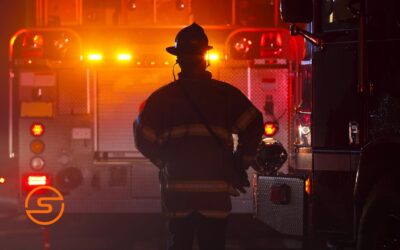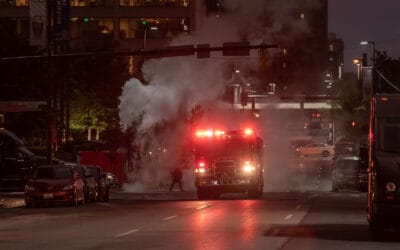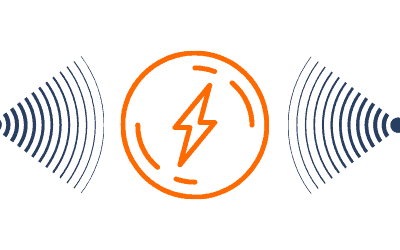Stories & Articles
Thanks to the past, we can push towards the future.
The Safeguard Compass is a result of our never-ending push for higher safety standards in the workplace. Influencers of today’s safety technology have a variety of different roots ranging from Charles Dalziel to electroreception in sharks. Read our blogs to learn the history of the industry along with the critical improvements made in employee safety.
What’s Under the Ground Where You Are Working?
Almost every construction project requires digging, whether you are building a single-family home or undertaking a major highway expansion project.
Wildfire Season and First Responders: How Personal Voltage Detectors Save Lives
Over most of the country, summer brings hot, dry weather and thunderstorms. While summers have their obvious charms, there is a clear downside: as the heat continues, the risk of wildland fires increases.
The Best Personal Voltage Detector for Storm Responders
As summer starts to wind down, many people begin thinking about preparations for fall. For some, it means doing things like getting ready for school and storing lawn furniture. Soon they’ll start to pack away the tank tops and swim trunks, and pull out sweaters and rain slickers.
But for storm responders, the preparation is a bit different. For them, it’s time to gear up for some hard work.
The Safety Risks For Lone Workers
When you think of “first responders,” you usually think of firemen, policemen, or EMT’s. When disasters such as tornadoes, wildfires, explosions, earthquakes, hurricanes, and storms hit, it is natural to think about the people who engage in rescue and evacuation operations, or who provide needed medical care to the injured or displaced.
Top 10 Safety Tools For Linemen
At Safeguard, we’re doing everything we can to make lineman deaths and injuries a thing of the past. So what sorts of safety equipment do linemen need? Here is a list of what we consider the top ten tools linemen need for their safety.
Why Emergency Response Takes so Long
Tiffany pulled her scarf up around her face to protect against the harsh wind as she walked home from class. She hated getting out so late from her labs in the winter. With the sun setting, she always had to walk home in the dark. Her thoughts quickly turned to the ever-growing task list to prep for finals next week. Tiffany was so caught up in her thoughts she almost missed the sound of...
3 Common Scenarios Where First Responders Need PVDs
One of the most common questions on the internet is whether or not first responders need PVDs to protect themselves from unexpected electrical contact. Whether it is a car accident or patient retrieval, there will come a time as a First Responder where your job pulls you into a hazardous electrical environment. While these scenarios may seem inevitable, deadly electrical contact can be...
How First Responders can Avoid Electrocution in a Car-Hit-Pole Senario
It’s an unassuming evening. The weather is the clearest it’s been in weeks but inevitably your station gets a call about an accident involving a young family and an electrical pole. The dispatcher mentions leaking gasoline and downed power lines. Your unit responds accordingly, setting a record for response time in the process. Photo taken May 5, 2021 in Shreveport, La. by KTBS When you arrive,...
5 Features We Wish More PVDs Had
Whenever we encounter individuals who work in the power industry, one of the first questions we ask them is if they use personal voltage detectors (ie. PVDs). If they say yes, chances are, they’re using the V-Watch by Greenlee or another kind of PVD. First and foremost, major props for anyone using PVDs in general. No one wants to learn the hard way why electrical safety and the use of PVDs...
6 Reasons Why Firefighters Are at High Risk of Getting Electrocuted
By Julianne Wendt In the name alone, it’s a no-brainer that firefighting is a high-risk job. We could all name off 5 to 10 threats firefighters face on a daily basis, but chances are, none of us would think about electricity. Regardless of our assumptions, most electrocutions are caused by non-electrical workers unintentionally contacting energized sources and firefighters are no exception to...


